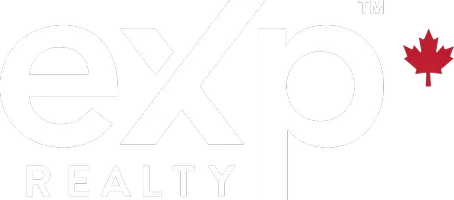

Understanding the New 30-Year Amortization for Edmonton's First-Time Home Buyers
Overview of Canada’s New 30-Year Amortization Program Starting on August 1, 2024, Canada introduced a new 30-year amortization program designed to ease the financial burden on homebuyers, particularly first-time buyers. This initiative is part of the government's broader strategy to improve housing affordability across the country. What Led to the Introduction of the 30-Year Amortization Program? Historical Mortgage Trends in Canada Historically, Canada has seen fluctuating mortgage terms, with 25-year amortization periods being the norm. However, with rising housing prices, there has been growing pressure to extend these terms to make homeownership more accessible. Government Initiatives to Support First-Time Buyers In response to these challenges, the Canadian government has implemented several programs aimed at first-time homebuyers. The 30-year amortization program is the latest in a series of measures designed to enhance affordability. Key Features of the 30-Year Amortization Program Who is Eligible for the Program? The program is open to first-time homebuyers who meet specific criteria, including income thresholds and credit requirements. How Does the Program Differ from Previous Mortgage Options? Unlike the traditional 25-year amortization, the 30-year option allows for lower monthly payments, although it does result in higher interest payments over the life of the loan. Advantages of a 30-Year Amortization for Homebuyers Lower Monthly Payments: What It Means for You One of the primary benefits of the 30-year amortization is the reduced monthly payment, which can make it easier for buyers to manage their finances. Long-Term Financial Planning: Pros and Cons While the lower payments offer immediate relief, buyers must consider the long-term implications, such as the total interest paid and the extended commitment. Potential Drawbacks of a 30-Year Amortization Impact on Total Interest Paid Over Time A longer amortization period means more interest paid over the life of the mortgage. Buyers need to weigh this against the benefits of lower monthly payments. Risk of Longer Debt Commitment Committing to a mortgage for 30 years can be daunting, especially with the uncertainties of the future financial landscape. The Effect on the Canadian Housing Market Predicted Trends in Real Estate Demand The introduction of this program is expected to increase demand for housing, particularly among first-time buyers who were previously priced out of the market. Impact on Housing Prices and Affordability While the program aims to make housing more affordable, it could also lead to increased competition, driving prices higher in some markets. Real-Life Examples: How Homebuyers Are Benefitting Case studies show that first-time buyers are finding it easier to enter the market with extended amortization, though the long-term financial impact varies. Final Thoughts on the 30-Year Amortization Program Overall, Canada’s new 30-year amortization program offers both benefits and challenges. It provides immediate relief in the form of lower monthly payments but comes with the trade-off of higher long-term costs. FAQs What Should First-Time Buyers Consider?First-time buyers should carefully assess their long-term financial goals and consider the trade-offs between lower payments and higher overall interest. Can I Switch to a 30-Year Amortization if I Already Have a Mortgage?No, right now that is not available in the current program. How Does This Program Compare to Other Mortgage Options?Compared to shorter amortization periods, the 30-year option offers lower payments but at the cost of increased interest over time. What Are the Long-Term Implications of Choosing a 30-Year Amortization?Buyers should consider the impact on their long-term financial health, including retirement planning and overall debt levels. Is This Program Right for Everyone?The 30-year amortization program is not suitable for everyone. Buyers should consult with a financial advisor to determine if it aligns with their financial goals.
Read More

Mastering the Market: Your Comprehensive Guide to Real Estate Terms in Edmonton
Welcome to our comprehensive guide to understanding the labyrinth of real estate terminology! Whether you're a seasoned real estate professional looking to polish your vocabulary, a new agent eager to master the industry jargon, or a prospective homebuyer or seller aiming to navigate the complexities of real estate transactions more effectively, this blog is tailored for you. We will explore a range of essential terms that are key to grasping the nuances of real estate marketing and transactions. From the basics of 'As-is', 'Amortization', and 'Closing Costs' to more intricate concepts like 'Escrow' and 'Due Diligence', each term will be broken down in simple, easy-to-understand language. Our goal is to empower you with the knowledge you need to make informed decisions in the world of real estate. Stay tuned as we decode the terms that can help you succeed in the market, enhance communication with clients, and streamline your real estate operations. Term Explanation Appraisal An evaluation of a property's value by a licensed appraiser. Closing Costs Expenses over and above the price of the property that buyers and sellers normally incur to complete a real estate transaction. Conventional Sale A real estate transaction that is not affected by additional factors such as foreclosure or probate. Land Lease An agreement where one party allows another to use a piece of land for a specified time in exchange for rent. Listing Agent A real estate agent who lists the property for sale on the market. Buyer's Agent A real estate agent who assists the buyer in finding and purchasing a property. Equity The difference between the market value of a property and any outstanding mortgage balance. Foreclosure A legal process in which a lender attempts to recover the balance of a loan from a borrower who has stopped making payments. Fixture vs. Chattel Fixtures are items permanently attached to the property (like built-in furniture), whereas chattels are movable items. Listing Agreement A contract between a property owner and a real estate broker authorizing the broker to represent the seller and find a buyer. Mortgage Pre-approval A lender's assessment of a potential borrower's ability to finance the purchase of a home before agreeing to lend the money. Closing Date The date on which the buyer is entitled to possession of the property and responsible for taxes, utility charges, and other fees. Covenant A promise in a written contract or deed of real property that certain activities will or will not be carried out on the property. Easement A right to cross or otherwise use someone else's land for a specified purpose. Encumbrance A claim or liability that affects the title to real estate, such as mortgages, leases, easements, or restrictions. Fixture Personal property that becomes real property when attached in a permanent manner to real estate. Lien A legal right or interest that a lender has in the borrower's property, until the debt associated with it is paid off. Market Value The highest estimated price that a buyer would pay and a seller would accept for an item in an open and competitive market. Porting Transferring an existing mortgage from one property to another, useful for buyers moving to a new home. Real Property Land and any permanent structures attached to it, such as houses, outbuildings, and other fixtures. Realtor A real estate professional who is a member of the Canadian Real Estate Association and adheres to its strict code of ethics. Refinancing Replacing an existing mortgage with a new one, usually to reduce monthly payments or tap into home equity. Zoning Government (municipal) regulation of land use which designates permitted uses of land based on mapped zones. Amortization The process of spreading out a loan into a series of fixed payments over the loan's duration. Appreciation The increase in the value of a property over time due to various factors like market conditions and improvements. Capital Gains The profit realized on the sale of a property that has increased in value over the time it was held. Equity The difference between the market value of a property and the outstanding balance of all liens on it. Foreclosure A legal process in which a lender attempts to recover the balance of a loan from a borrower who has stopped making payments. Mortgage Broker A licensed professional who compares multiple loan products and facilitates the borrowing process for clients. As-is A term used to describe a property sold in its current condition with no warranties or guarantees by the seller. Closing The final step in executing a real estate transaction where the title passes from seller to buyer, and the funds are transferred. Days on Market (DOM) The number of days a property is listed on the market before it sells. Offer to Purchase A formal proposal made by a buyer to purchase real estate, which includes the price and terms under which the buyer is willing to purchase the property. Conditional Offer An offer to purchase a property that includes conditions that must be met before the sale can go through. Land Lease An agreement where the land is rented rather than owned by the homeowner, common in cooperative housing. Market Value The most probable price a property would bring in a competitive and open market under all conditions requisite to a fair sale. Simplified, what a buyer is prepare to pay and what a seller is prepared to sell for. Appreciation An increase in the value of a property due to changes in market conditions or other causes. Realtor Jargon Specific terms and language used by real estate professionals to communicate about property transactions. Property Management The administration of residential, commercial, and industrial real estate including apartments, detached houses, condominium units, and shopping centers. Mortgage A loan obtained to purchase real estate, typically secured by the property being purchased. Listing A written contract that gives a real estate agent the exclusive right to sell a property for a specified time. Due Diligence The necessary research and analysis that a prudent purchaser/investor should undertake before making business decisions.
Read More
Categories
- All Blogs (22)
- downsizing (2)
- Eco-friendly Homes (1)
- Edmonton Bylaws (2)
- Events & Community News (4)
- First Time Home Buyer (4)
- Gardening & Landscaping (1)
- Home Buying Tips (14)
- Home Insurance (2)
- Home Selling Tips (6)
- How to (9)
- increase home value (8)
- Interior Design (1)
- Local Market Trends (8)
- market Influences (11)
- Market Update (9)
- Migration (2)
- Mortgage Info (2)
- Moving & Relocation (8)
- Neighborhood Profiles (4)
- Real Estate FAQs (15)
- Real Estate Investment (1)
- Real Estate Laws & Regulations (2)
- Technology in Real Estate (2)
Recent Posts










